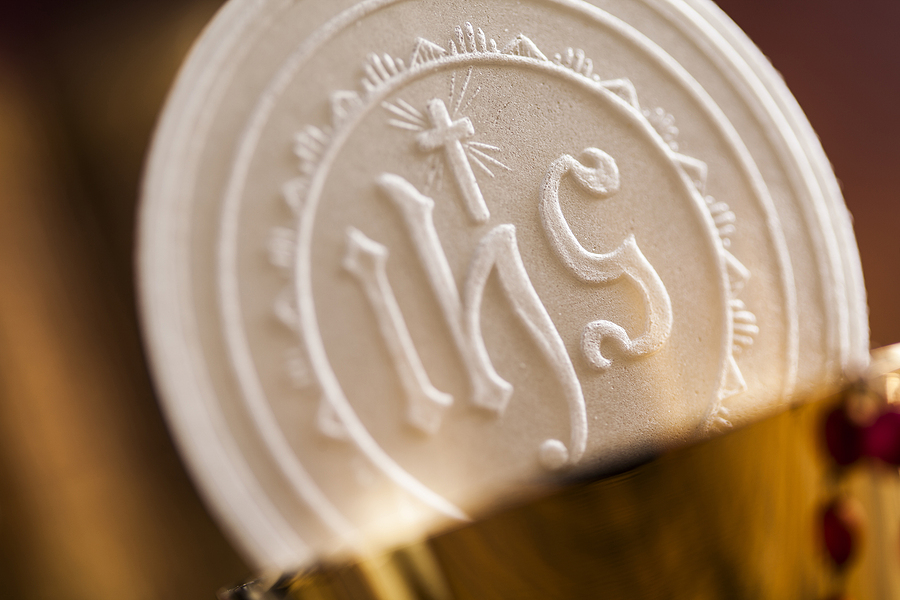
Lessons in stupidity from King Herod
Unfortunately, some of us just get old without losing the stupidity of youth. Like lessons in stupidity from King Herod.
Each August 29th, the Christian liturgy memorializes the beheading of John the Baptist. It’s one of the few Gospel readings that don’t include Jesus– and contains the perfect recipe for ruining our lives:
- commit adultery,
- let the person who cheated on their spouse direct your decisions,
- throw a birthday party for yourself, inviting all influencers
- after a lascivious performance, offer your niece anything she wants
- don’t be surprised when she asks for your soul.
It’s tempting to read this Gospel passage as a distant story in a foreign land far removed from us. But we can’t. At least I can’t. Because I remember all the wicked things I did before I returned to God and His Law. The times that I did something I knew to be morally wrong because of a man. So when I read this story, I feel sorrow and sympathy for King Herod because he mirrors my stupidity.
The sorrow and sympathy is because of the obvious attraction of this presumably atheistic king for truth– and for my younger self.
Herod feared John, knowing him to be a righteous and holy man,
and kept him in custody.
When he heard him speak he was very much perplexed,
yet he liked to listen to him. [Read entire passage]
But there’s far more here.
“The actual description of John the Baptist’s death as it is presented in the Gospels has been radically reconstructed by popular culture and has become a tale of political intrigue and sexual sublimation that is provoked by a religious zealot and a sexy dancing girl. This all seems to me to be a case of reading into the text a meaning that we would prefer, rather than dealing with the text as it is. There is intrigue and sublimation in the story, but it is not the kind that we might think it to be.
[Rene] Girard notes that the Greek of the New Testament text identifies her not a “kore” (young woman) but a “korasion,” or little girl. We are dealing with a child who is being manipulated. This child is learning early in life what we should desire and where our desires should take us. Not only does this detail make Herod’s delight at the girl’s dancing all the more disturbing, but it also illuminates just how insidious the corruption of Herod and his successors really was. John was driven to denounce the wickedness of the royal family not just on the basis of a technicality involving the Mosaic law, but because the dynasty was corrupt to the core. The truncated relationship of Herod and Herodias is just the tip of the iceberg. It is what remains concealed beneath the surface that is really shocking. The actions of the king and queen in regard to the child should cause our skin to crawl.
Father Steve Grunow-Word on Fire
Herod and Herodias are of a priestly class but from a corrupted family who train their young child in depravity. JJust like today, their corruption would have been well known among the citizens spread through the ancient social media: word of mouth.
In the Gospel of Matthew, Jesus explains the strange intermingling of good with evil:
The value of weeds
is the title of the eighth chapter in Weeds Among the Wheat: Where Prayer and Action Meet, by Thomas H. Green, SJ. The mysterious parable is one of the critical keys to discernment in Ignatian Sprituality.
He put another parable before them, saying, “The kingdom of heaven may be compared to a man who sowed good seed in his field,
but while his men were sleeping, his enemy came and sowed weeds3 among the wheat and went a
So when the plants came up and bore grain, then the weeds appeared also.
And the servants of the master of the house came and said to him, ‘Master, did you not sow good seed in your field? How then does it have weeds?’ He said to them, ‘An enemy has done this.’ So the servants said to him, ‘Then do you want us to go and gather them?’ But he said, ‘No, lest in gathering the weeds you root up the wheat along with them.
Let both grow together until the harvest, and at harvest time I will tell the reapers,
Gather the weeds first and bind them in bundles to be burned, but gather the wheat into my barn
The parable is the most mysterious of the seven parables in Matthew, writes Father Green. Not only does it explain the intermingling of good and evil in the world, but in the individual souls of believers. St. Paul’s thorn, the one he begged to have removed but the Lord deemed it necessary illustrates this truth. Referring to St. Paul’s discussion of the two laws within him in Romans 7, Father Green goes further to suggest that our instinctual and involuntary weaknesses will likely remain in us until we die. “The wheat of our virtues—trust, humility, gratitude, zeal–could not come to full maturity, it seems without the weeds of our instinctual failings.”
Like Paul then, we accept and trust that “My grace is enough for you, my power is at its best in weakness.”
Lessons in Stupidity from King Herod.
Can we mitigate the growing evil?
In a remarkable interview with Rene Girard, Girard replied to that question with brilliance: increase our personal sanctity.
At an invitation from my online friend, Janet Klasson, I signed up for praying an assigned hour of the Passion Clock. I’d read Luisa Piccarreta’s Twenty-Four Hours of the Passion of Jesus Christ before. but the wisdom of organizing a method where we pray one hour daily for seven days is inspired. Because after a couple of times praying that hour, we become familiar with it enough to recall it throughout our day. As is, of course, the point.
The twelfth hour is 4-5 AM. And the soldiers are mocking, insulting and torturing him. Luisa describes his beautiful eyes filled with spit, soldiers even forcing open Our Lord’s mouth to fill it with their spit. And Jesus’ “supernatural love and sweetness” that shines throughout.
And recalls what St. Benedict calls the evil zeal that can take residence in my heart. Something unjust happens to someone whom I love, admire and/or respect and my firmness disappears. Firmness–a peculiar word but one Luisa Piccarreta uses after her inspired vision of the twelfth hour of the Passion of Christ.
Following the explicit and graphic narrative of each hour we pray-ers are asked how we handle situations in which we’re criticized unjustly. Or ridiculed. Or betrayed. Do we exhibit the constancy that Jesus did while enduring people spitting, stomping and brutalizing him?
Firmness is that virtue which makes us know whether God really reigns in us. If ours is true virtue,
we will be firm in trial, with a firmness which is not inconstant, but always equal to itself. The more
we become firm in good, in suffering, in working, the more we enlarge the field around us, in which
Jesus will expand His graces. Therefore, if we are inconstant, our field will be small, and Jesus will
have little or no space. But if we are firm and constant, as Jesus finds a very extensive field, He will
find in us His shelf and support, and the place in which to extend His graces.

We take Communion
and we communicate with God. At the same time, it is more than Communion–it is an invasion by God. To be invaded by God is joy. We plunge into the mystery of love, a reality more real than the air we breathe, than the life we live throughout the day…Here begins the kingdom of God. Through the Holy Eucharist you will fall in love with God. The more you love God, the more you receive God. The deeper your love becomes, the more your heart opens. You and the Trinity are one. Catherine de Hueck Doherty



